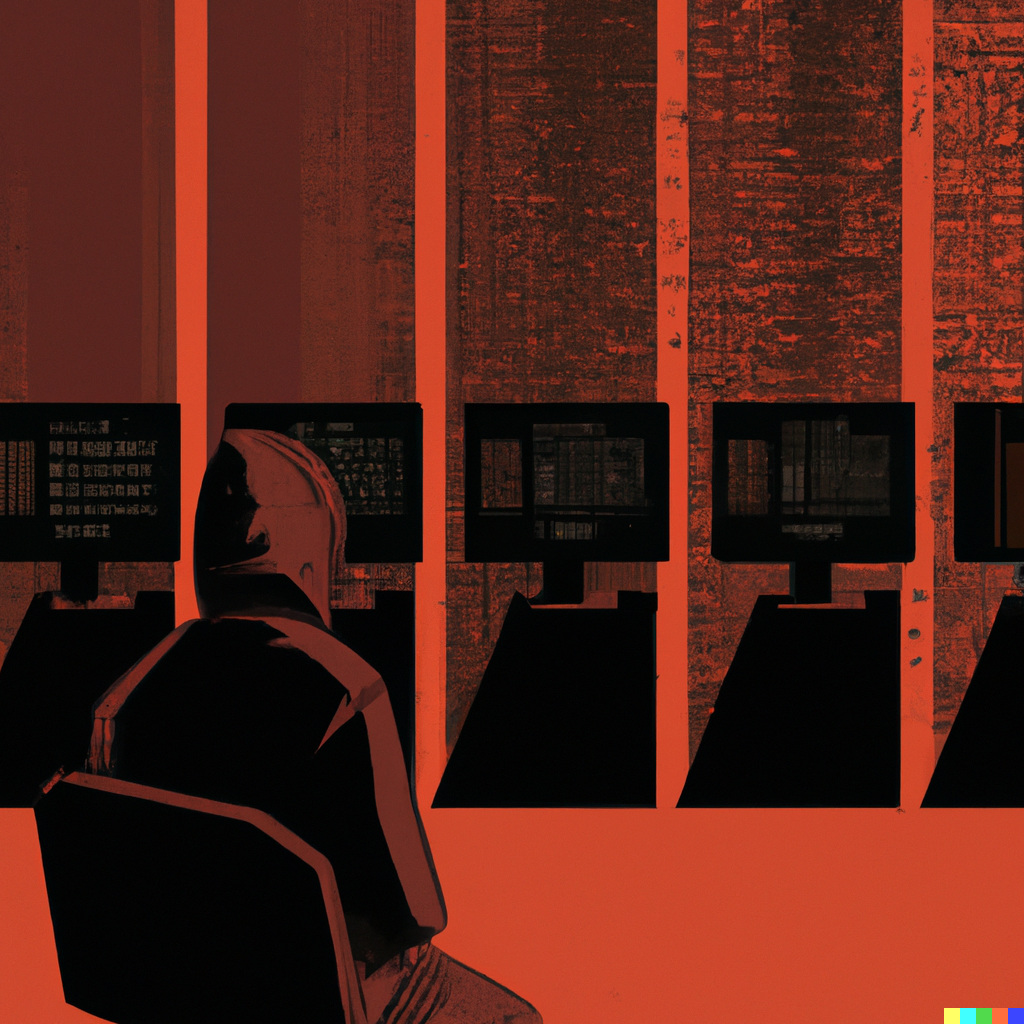Is that the engineers fault? Or is that the people who are supposed to check for usability after the engineer is done designing the functional aspects? Because it’s not usually an engineer’s job to do this…
Basic product testing is the foundation of manufacturing, an error like this doesn’t get all the way through production and it still be just the engineers fault.
Checking for usability is one of the key parts of design iteration, which is done by product engineers. Source: am product engineer
Former mechanical design engineer checking in as well: can confirm, the engineer’s fault here.
You don’t just design it just to work, a hobbyist can do that.
Edit: Not saying I have never made a mistake, everyone makes mistakes. And of course in a proper (especially big) design department someone always cross checks your work, so there must’ve been multiple people to blame. But mistakes happen and that alone is no reason to fire someone.
In my first job a senior told me that you will experience making an expensive mistake and that it’ll be a good lesson (I did).
Yes, it’s the engineer’s fault. OTOH, it’s QA’s fault for not catching that mistake, and the company’s fault for releasing a product that wasn’t properly tested.
We’re talking about Cisco here, a company that sells millions of units. The more units you expect to sell, the more extensive your QA procedures need to be. It’s not like this is their first piece of networking gear either. Maybe they’ve never had this specific error before, but surely they’ve had errors caused by people using a variety of different kinds of ethernet cables. I would imagine they have tests where they plug a dozen different kinds of ethernet cables into every new product they make just to ensure that a cable that has given them problems before doesn’t have issues with this new piece of gear.
When a problem like this is caught by QA people, it’s mostly the engineer’s fault for a design mistake. When these errors are caught in the wild by customers, it’s the company’s fault for a screw-up somewhere in their QA / test / release procedures.
a company that sells millions of units.
Are they still that popular, even today? From what I’ve seen, many enterprise users have moved towards Juniper and Arista, while small business and prosumer have moved towards Unify and Omada.
Cisco’s worth $224b USD, not all of that is hardware, they also have WebEx, ClamAV, and various other things under other brands. Don’t forget that a lot of their hardware is under other brands too, for example they owned Linksys for a while, and currently own Scientific Atlanta. In total, they’ve acquired 243 different companies over the years, so even if something doesn’t say “Cisco” it may be a Cisco product.
Cisco has a market cap of a quarter trillion, sadly yes, they’re still around.
I like Juniper gear. Even with their current supply problems I’d probably still try to go all juniper if I had to make a decision.
They probably reused a PCB from another model that used a paperclip hole reset. They duplicated the design, sent it for testing, and came back with “everything is great, but make the reset a push button before you ship it.” Engineering probably said “ok. But it will need to go back for usability testing” and sales said “fuck that, send it”
Or another possibility, after proto and lots of testing: “we need to move test button a couple of cm to the right, away from the corner. No further tests needed”
That seems highly plausible to me
Yes it is the engineers fault, but even then there should have been multiple people that should have caught such an issue along the way.
As an engineer, I agree.
You cannot be a layer of security if your attitude is, “this is someone else’s problem”.
The swiss cheese model of security is what I go by. Yes, no one is perfect, but that’s precisely why every single person needs to actually give a damn. (and why people should be paid enough to care) The more layers of protection from catastrophe, the better.
Giving in because others are involved is literally Bystander Effect-ing your job effectiveness. Only idiots should be OK with, “this is someone else’s fault.”
No, this is also other peoples’ fault, but make no mistake: the engineer is on that list.
Probably both, but you’re right, there’s definitely a qa problem here
It’s very strange engineer, if he doesn’t aware of RJ45 connector form-factors.
Hey I’m not absolving the engineer for not doing basic interference checks but I’m saying it’s also somebody else’s job I’m sure, Cisco’s not a small company.
What’s the point of mentioning that it’s someone else job too?
What’s the point of putting it all on the engineer?
Who’s putting it all on the engineer?
It literally says “at least you’re not the Cisco design engineer…”
And? It showcases engineer fault, but how do it shift all blame to him?
Sounds exactly like something an engineer would say.
Engineer-adjacent haha
did they change careers after that? I would want to work on a farm and touch grass every day with my new friends, the animals.
deleted by creator
From this design flaw we can determine that Cisco doesn’t use Ethernet cables with protective boots
Even without the boot, I would think that a person’s thumb would hit the button regardless.
They would have had to pick an RJ45 with that kind of boot (there are other kinds) in that particular port during testing. Or, perhaps think more and say “hmm I wonder if that button is in a bad place”
If I’m a tester, plugging cables in and out all day, I’ll rip that boot off first thing.
The boot in the example is extremely common though, there’s no excuse for someone working at Cisco of all places to not test multiple cables in the test unit.
This went straight from designer to production because someone thought it would be cheaper to skip testing
Poor product testing doesn’t mean engineer hadn’t make a stupid and serious mistake.
But it does make the company stupid for letting it get to production
It already has been said higher in the thread
deleted by creator
/r/crappydesign
Oh wait, this isn’t the Reddit anymore.
Did I do that right?
Exclamation mark denotes the community, so:
The @ is the username indicator, so you’ve pinged people whose usernames are those for the instance.
This is one of those double edged sword things with Lemmy, since there’s so many places a community can be, they all end up being a little smaller. There’s got to be a better solution for that. Maybe when creating a community there should be a way to automatically search a large portion of committed all at once and display it to the user.
What’s needed is the ability to create and share ‘meta’ communities. A group of smaller communities can then loosely appear as a single larger community. Users can still drill down to the individual sub comunities, if they choose to. A little bit like a recursive federation.
This reminds me of Macintosh computers from the late '80s/early '90s. The disk drive had no physical eject button and the power button for the computer was a big knob sticking out right below the disk drive. Coming from the PC world, it took me a couple of days to learn to stop turning off the computer every time I tried to eject the disk.
Oh yeah the “hilarious” obligation to drag the floppy to the trashcan to eject it.
So intuitive…
Til… Sounds actually hilarious
Yeah maybe it was but it sure wasn’t intuitive!
Is it going to erase my floppy? No just eject it…
Ofc it’s Cisco
that’s how you reset a product line
Was there a recall? I remember them sending out an advisory of the default behavior (and how to disable it), then changing the default behavior in software.
Cisco and Juniper need to die as entities like 5 years ago. They’re single-handedly holding back all of networking from entering the modern era of computing.
Care to elaborate? Sounds like an interesting story.
Honestly can’t elaborate too much as I was only a junior network guy at best and it’s been a few years since that. But coming from a world of infrastructure as code and CI/CD deployment strategies, the shit we had to do to manage changes on Cisco and juniper switches was ridiculous. It was like stepping back into the stone age.
Sounds more like arrogant ignorance
You must not work in enterprise IT. Every lower level network engineer says this until they gain more skills and experience with them. Then they realize the full extent of features Cisco and Juniper support that others don’t
Surprising opinion, I was only a junior in my brief stint at networking but all my seniors shared this opinion.
I actually, legitimately, laughed out loud at this one 🤣













